My dad, Herbert Miller, was trained as a replacement troop during the fall of 1944. After he arrived in Europe he was assigned to Company L, 333rd Regiment, 84th Infantry Division. The 84th was known as the Railsplitters. He fought in the Battle of the Bulge in Belgium and later in parts of Luxembourg, Germany, and France.
I continue with the transcriptions of the letters my dad wrote home while he served his country during WWII. The war was over by the time he wrote these letters and he was serving with the Occupation Force in Germany. His letters give us an idea of what things were like for him during that time.
The first two letters are V-mail letters, tiny letters, reduced in size and rather difficult to read. My dad does some complaining in the third letter, which is rather unusual because he usually didn’t complain much.
V-mail letter from Pfc Herbert Miller to Em & Jack Weitz, Rockford, Ohio:
19 June 1945
Germany
Dear Em & Jack,
It’s about 4:30 in the morning and just got off guard duty. Only have 1½ any more so it isn’t any use to go to bed.
How is everything coming along around Chatt? Do you have all of the crops out yet? I don’t have the least idea where I’m going to be sent but right now we are doing the job of occupational troops and if we stay here 6 months that means 6 months less in the Pacific. The town we are in now is about the size of Celina. These German towns are very old and historic. This particular town has a castle that was built sometime in the 13th century. It is half in ruins, not from the war, and sits right on top of a hill. From there you can see for miles and miles. Oh, yes, the ground is very hilly around here, something like Alabama.
There are very few passes given out. Four men out of forty got passes in the last 6 months. The passes are for Paris, Holland, and Belgium. You don’t need a pass in Germany. You can go into town any night or every night But you can’t associate with the German farms [?] homes [?].
Must close for now.
Love,
Herbie
He was very likely referring to Schriesheim Castle, where he took these photos.
My dad mentions going to the Pacific in the letter above. The rumor was that if the war had continued the 84th would have been sent to the Pacific, but the war with Japan ended in September 1945.
V-mail letter from Pfc Herbert Miller to Em & Jack Weitz, Rockford, Ohio:
30 June 1845
Germany
Dear Em & Jack,
It’s Saturday afternoon and decided to write a couple of letters. How is the farming coming along? OK I hope. Are there any ripe tomatoes yet? How about the corn? Is it up yet? I imagine it is and is getting pretty tall. They don’t raise any corn at all around here or anywhere in Germany. They raise lots of beets and grass [?]. Where I’m at now is way up I the hills, just about like Alabama, hot in the day and cool at night. I’ve had two baths [?] at American bases since I’ve been over here.
Today was pay day. I’ve been sending $15 home every month until the last two times. I’m going to save it for when I go on pass. It will probably be quite a while yet.
I’ve been in the Army a year now. Sure does seem like a long time. In 12 more days I’ll be over seas [?] months.
I must close for now. Am feeling fine and hope you are the same.
Herbie
From Pfc Herbert Miller to Mr. & Mrs. Norval Weitz, Rockford, Ohio. Letter inside stamped Rockford, Ohio, 31 Aug 1945:
10 July 1945
Schriesheim, Germany
Dear Em & Jack,
I received your letter tonight that you mailed July 2, that is 8 days, not so bad. The mail situation is really terrible, when we complain about it they tell us the folks back home have probably stopped writing. There were 14 letters for 160 men. Not very good is it? The day before there were 6 letters and the day before 48. Then they wonder why we feel blue. We were having 3 shows a week and now there is only 2. The theatre is just a small one and only half of the men can go in it. Nobody to talk to. Today for chow we got 1 hot dog, a little sauce on top of it, one biscuit, and a cup of ice water. They are nearly starving us. Then we have 8 hours of training a day. Such a life.
How is farming coming along? Are the crops coming along OK?
Johnies [uncle & aunt, John & Clara (Miller) Reef] asked if we had a refrigerator. I’ve seen two since I’ve been in Germany. The German bread is black and you could leave it sit for a month and it would be just as hard as fresh. They don’t have any fancy food like we do. When we were moving from the Ruhr to the Rhine and from the Rhine to the Elbe, we were moving so fast. We would come or move so fast that when we would clean out a house they would be cooking a meal and it would be on the stove.
I haven’t received a box for quite a while so I am going to request one.
Love,
Herbie
P.S. Please send a box of food.
Getting letters and packages was very important to the troops. I am sure they looked forward to mail-time very much and were probably very disappointed when they did not receive anything.

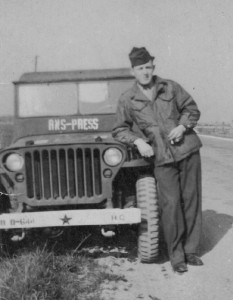
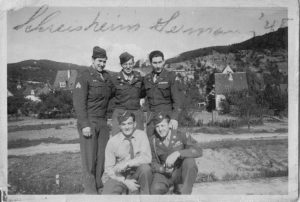
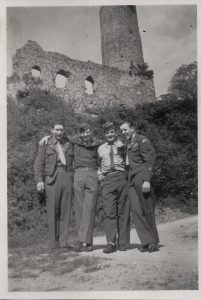
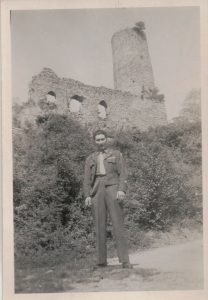
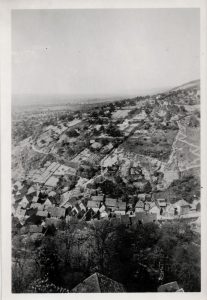
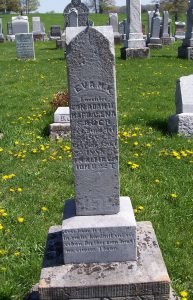
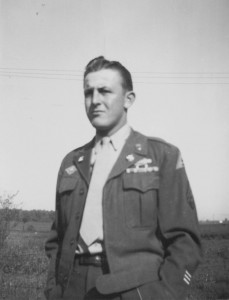
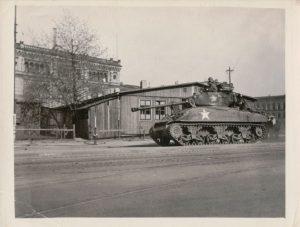
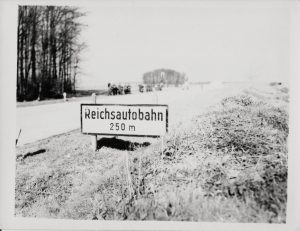

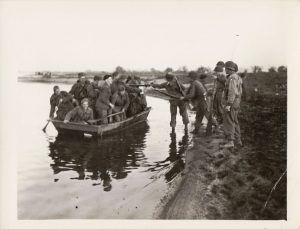
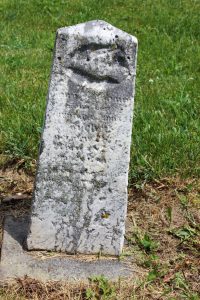
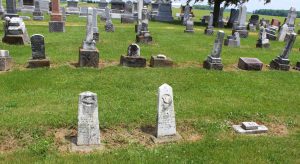
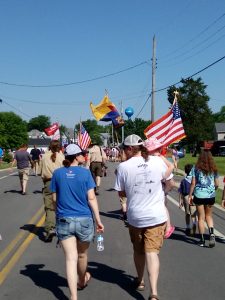
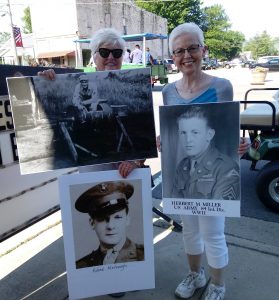

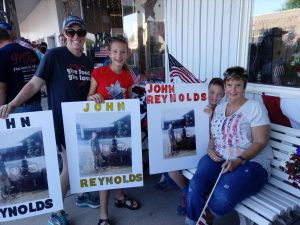
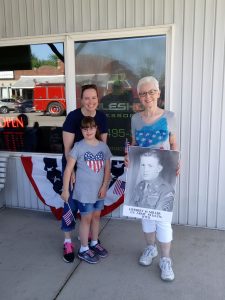

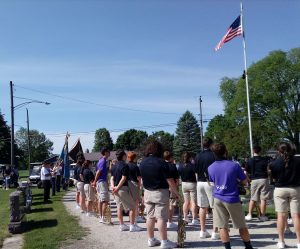
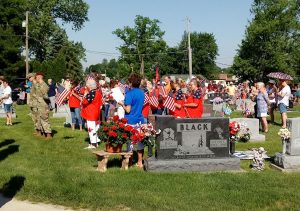

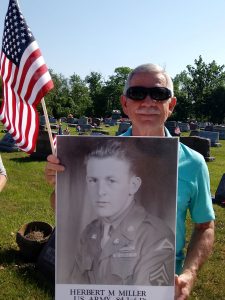
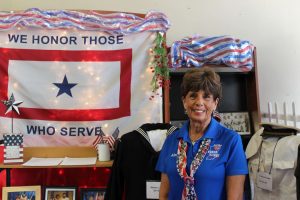
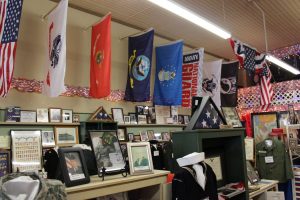
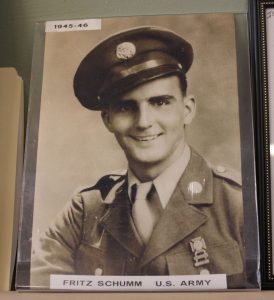


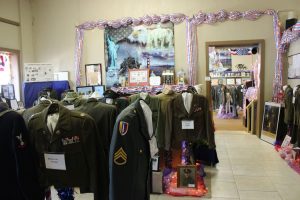

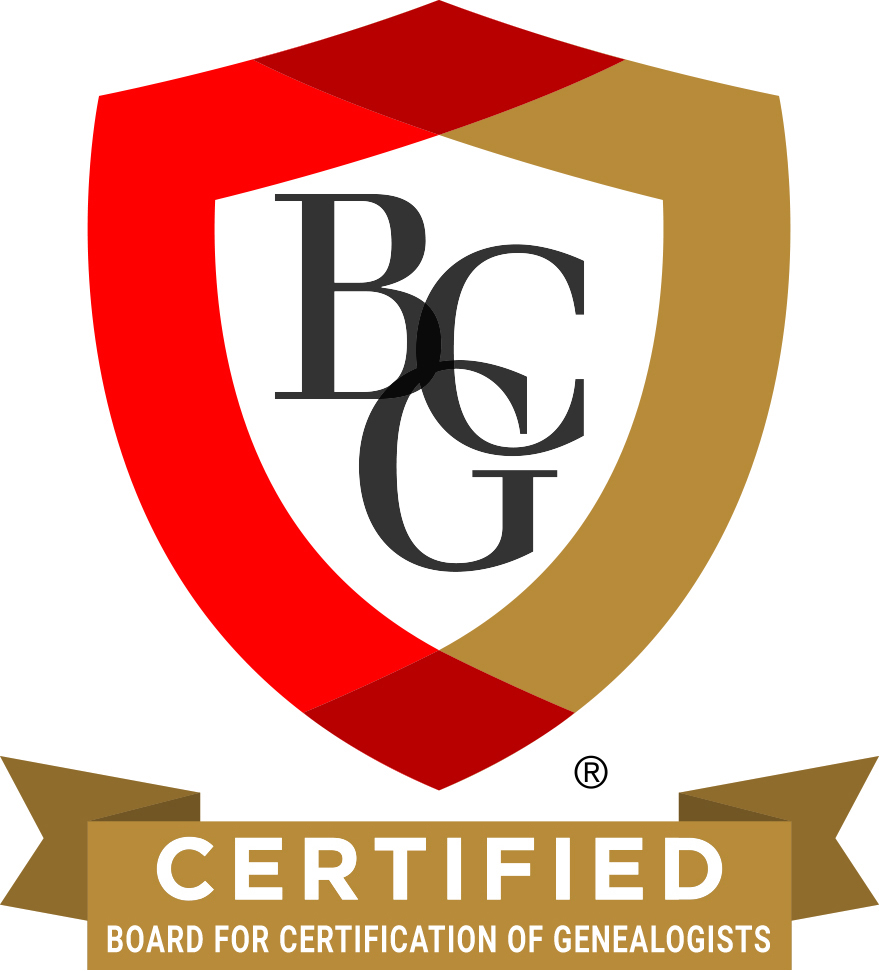


You are welcome!
You're welcome, Karen. I'm still working on this also. Thank you so much for all of your wonderful Mercer County…
Very interesting and great picture (I had neersee before) of the church! Thanks for sharing this, Karen.
Ha! I see why you say that. Your original surname was probably something similar to Schmitt.
Thank you for letting me know.